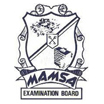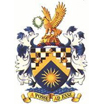The Society
The Society of Business Practitioners was established in the United Kingdom by, and for the benefit of, a group of highly successful business practitioners. Their objective was to share a common wealth of knowledge, skill and experience, with the aim of furthering and protecting the success of each member of the Society.
This aim achieved, the Society grew from strength to strength, leading to the introduction of new members, gaining entry by qualifying examination and a world wide expansion to allow membership from other nations. Today, the Society has become the accepted senior professional body for business practitioners and business students, with a wide international distribution of members, embracing the complete range of business activities and integral disciplines.
As an Examination Board, the SBP derives its strengths and agenda from its membership and students. It is a non-profit-making organisation whose aim is to enhance and promote vocational business education. It is governed by an Executive Council made up of honorary members who meet on a monthly basis to review policy. An executive staff is responsible for the day-to-day management of operations and administrative support, who ultimately report to the Academic Review Council (ARC), made up of adjunct faculty members. The ARC advises the Executive Council on academic and quality assurance.
Dr Mike Whitaker is the current President of the Society.
The Society's Diploma awards are valuable, internationally recognised business qualifications which attract credits and exemptions from other institutes and educational establishments. Employers in commerce and industry look to the Society to provide professional business executives capable of enhancing business performance. The Society adopts a strong international role in all its activities, with offices or representatives in many nations actively serving the needs of local members, organising locally the S.B.P. diploma and other examinations and developing essential working relationships with government departments, educational establishments, professional institutes and employers.
A number of the Society's senior members hold key positions in these areas, thus enabling the Society to make its voice heard in business and education forums, further encouraging the development of optimum business practice, in a spirit of international co-operation.
Also, under the Society's continuous improvement policy, increased growth has beneficially changed the Society's infrastructure. Our highly successful and long standing involvement in educational development in Asia, has led to the establishment of an Asia Pacific Division headquarters based in Singapore. This important step has already produced a more global approach to education and examinations closely monitored by an international committee of Examiners.
Aims and Mission
To encourage, promote and develop through its Members, a standard of excellence in business practice, which can contribute to the well-being of nations and their peoples.
This is achieved by:
- Strict criteria governing membership entry based on a high level of qualification and suitability of applicants
- Arranging the provision of quality tuition to prepare candidates for the Society's professional and academic examinations
- Issue of the Society's Professional & Academic Awards to successful examinees.
- Dissemination of business information to members and other selected parties
- Supporting the Society's international offices and local representatives to develop optimum services to members and students
- Providing advice, guidance and help to members and students in relation to business practice, education and personal development
- Working in liaison with governments, members, educational establishments, other professional bodies, employers in industry and commerce and other influential organisations, worldwide, in pursuance of excellence in business practice and business education
- Working for the improvement of nations and their peoples and for international understanding


